247 Gurkha Signal Squadron is to be the second squadron of Queen’s Gurkha Signals soldiers based at MoD Stafford, say the Ministry of Defence.
The other QGS squadron is 248 Gurkha Signal Squadron, which is part of 22nd Signal Regiment. According to the news release:
“The vast majority of the new Squadron are Gurkha soldiers, drawn from existing squadrons, as well as being bolstered by a small increase in Gurkha recruitment from Nepal.”
At first say the Army, the squadron will be two troops strong as well as headquarters elements, but when fully formed will be made up of approximately 110 soldiers.
Lieutenant Colonel Ben Davenport, Commanding Officer 16th Signal Regiment, said:
“I am delighted to see the reformation of this fourth Queen’s Gurkha Signal Squadron which will continue the rich tradition of Royal Corps of Signals soldiers serving alongside their Gurkha compatriots.
The new Squadron will enrich the Regiment and enhance our capability. It will engender pride and a healthy sense of competition across all five sub-units and it reinforces our role at readiness for military tasks at home and abroad.”
The Army say that the squadron will play an integral part in 16th Signal Regiment’s new role as the lead signal regiment supporting the Army’s logistic formations and is part of the Army’s restructuring plan to meet its future tasks.


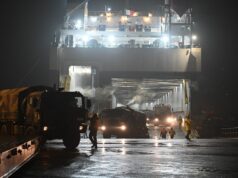
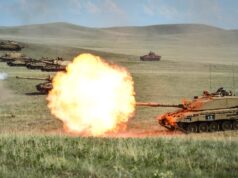
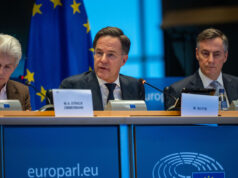

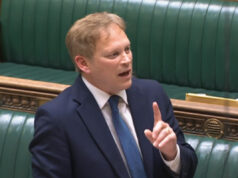
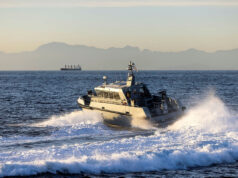
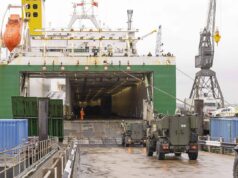
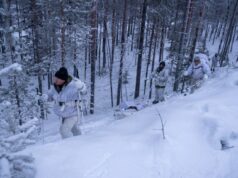
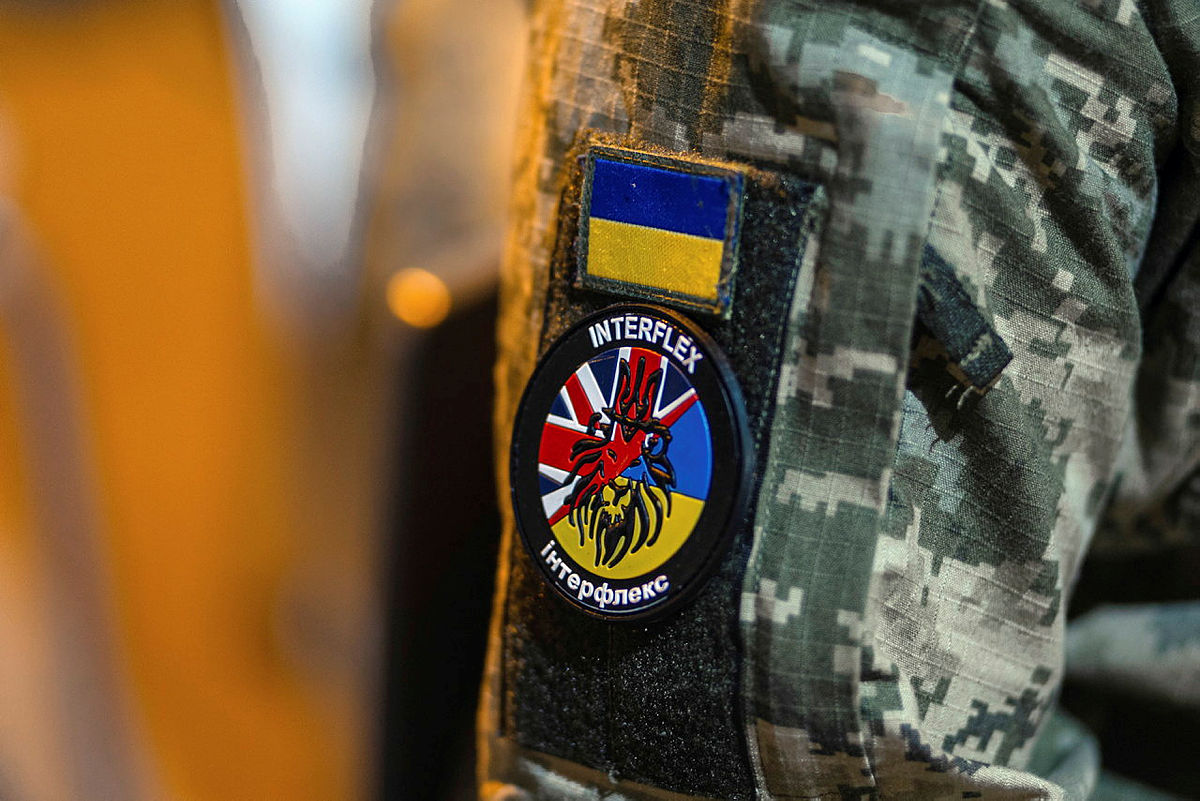
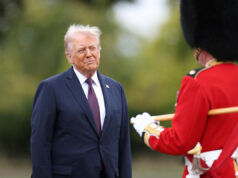

More. I want more.
You could never have too many of the little buggers … awesome friends of this sometimes undeserving little country
For the life of me I can’t understand why the Army doesn’t vastly increase the numbers of Gurkhas they recruit. They’re excellent soldiers arguably the finest infantry in the Army and second only to the RM in the armed forces as a whole. If I had any vote in the matter I’d fix the number of Gurkhas at 10% of the army. It would solve the recruitment crisis and give us a far better Army.
David I see the Gurkha myth is still going. They are good soldiers yes, but not at all “second only to the RM”. You may find that there is a vast number of experienced and professional Infantry soldiers who disagree with you. The Gurkha lads do have an ethos about joining the British Army, as it is seen a step up away from Nepal and poverty. Yes we still actively recruit about 200 lads per year and still do the physical and medical tests in Nepal. However a fact many who fall into the Gurkha myth is that many more are actually second generation lads joining, brought up in Aldershot or Pirbright as their dads served. Long way from the mountain ranges of Nepal, same upbringing with MacDonald’s and PlayStation. Yes they become fine soldiers, yes they are professional and yes they are committed, but then again so are the vast amount of other professional soldiers in the job. And yes, this opinion is taken directly after a large amount of experience with the Gurkhas, both when they were attached to the Brigade, on Ops and training. And as for recruitment, most actually go and join the Indian Army direct from Nepal.
The one good thing about the current recruitment is that HMG/MOD are now giving golden handshakes back to those Gurkhas who they have made redundant in the last 5 years, who have leave to remain in the UK. And most are re-joining as there has been another Gurkha RLC Sqn, and a Ghurka RE Sqn brought back into being in the last 12 months also.
Good post.
Airborne. Can you ever see an independent Brigade of Gurkhas formed from the varied sub units?
I know the Brigade is an administrative umbrella formation only formed from the 2 RGR Battalions and the other squadrons within other regiments.
Wondered if combining them into a proper brigade formation might create an even better identity, ethos, and first class fighting formation, akin to the Foreign Legion that would sit alongside 3 Cdo and 16 AA.
And yes I know doing this would create holes in other regiment orbats.
That used to be the case Daniele, but alas it wont happen in the current climate. To be a deployable Brigade they would need at least bring back the Battalion from Brunei to make it a two Battalion formation (still would need a third), and that wont happen as the Sultan likes the BFB to be there. And there are not enough “enablers” such as RLC/Sigs/RE etc to go around.
You are absolutely correct, its always better to form Brigades and units, in which each has its own unique ethos and capabilities and that foster a more “espirite de corp” but its not something I can see happening. Shame really, but even to at least get units back up and running, from the disastrous decisions and losses from the SDSR 2010 farce is at least a bit of good news.
I have read a report that Brunei is considering using an Indian Army Gurkha battalion for security, to allow the UK battalion there to serve elsewhere. Wish I could remember where I read the report. India would agree to this because of it own security needs re the PRC.
Having served alongside lads from RGR during my time in 2 LI & later 3 Rifles, I have to agree with Airborne that there will be a large number of professional soldiers that disagree with you. Myself included. The lads from Nepal do definitely soldier well, but not necessarily across the board better than other comparable infantry units.
I do agree that a significant increase in RGR numbers would help towards solving the under manning issues facing the Army, but the reasons for lack of retention and recruitment is unfortunately more complex than just increasing the number of RGR places each year.
I respect what you both say. We’ll agree to disagree.
A fantastic and enduring friendship, long may it continue
Morning Airborne, Daniele,
Interesting posts. Given that we are having trouble recruiting and we are supposedly becoming more global in outlook would a significant increase in Gurkha strength make sense? If we are basing troops in the Middle East and East Africa?
Taking a real leap now , any thoughts on a Commonwealth Brigade ie something akin to the Foreign Legion.
I would love to know the thinking behind the SDSR2010. We know its primary role was cost cutting, but i assume the MOD was given a target and they came back with cost cuts that would put them within it. Whether you agree or disagree with the cost cutting is history, the country was in a mess and the government has to cut costs somewhere and so it took it out on the MOD, whether right place is questionable but it happened.
In 2010, if you were a planner and looking at the threats, you had Iraq/Afgan war raging and the ‘war on terror’ was still very much in people’s mind. Outside insurgency warfare, there was no big country threat at the time and anyway the UK was no longer able to go it alone anyway. At the same time the military was calling out for more troops in Iraq/Afgan to avoid an embarrassing failure and a couple of years earlier the US had to surge numbers to help.
I get the cuts in things like nimrod, the carriers, etc as you could argue that they were not immediate priorities at the time and could be covered by allies. What i don’t get is cuts the the ground forces. Ok the biggest savings could be made by cutting man power, but surely there must have been other cuts they could have made, like to some of the failed vehicle programs or to switch to buying off shelf and save troops that were badly needed.
Really would love to know how the politics worked around these decisions between the 3 services.
Ask Cameron and Clegg.
Whether there was Liberal input pressurising the National Security Council who knows.
I remember rarely having been more deflated. I’d campaigned against that useless shower in the Labour party who had presided over a decade of cuts and degrading of our military.
As usual, the opposition made all the right noises. They come to power. Bang. Bigger cuts than under Labour. I was stunned.
Now we hear the same noises coming from the opposition and Nia Griffiths.
With a few honourable exceptions the lot of em disgust me.
I think it comes down to the same old. Politicians have little interest in defence. They are interested in votes and where else they can put their snout in the trough. They are also allied with big business ( globalists) which preserve most big programmes as those huge multinationals also want their slice of pork. Thus numbers and manpower always get it in the neck but few big lucrative ( for shareholders) programmes.
But my assumption, maybe incorrectly, is that Cameron/Clegg, would have just required an X% cut in costs and then it would have been up to the MOD to propose to the defence minister the cuts they proposed to meet that target.
There had to be other cuts that could have been made to equipment purchasing that would have done it, like dumping the warrior sustainment program, mothballing both albions (controversial i realise but they are not that useful in current situation), cutting ocean earlier (there was going to be a gap between ocean going out and qe coming in, so may as well cut earlier).
Other more extreme options would have been to advance the pull back from Germany and other countries like Ireland air defence, unless the countries agreed to pay towards the costs.
I am sure there are many cuts that could be done in consolidating the top bass roles and MOD roles, but that would require a lot of balls to do, due to top bass not cutting their mates roles and MOD being protected by the civil servant unions.
There is always talk of the international aid budget and i don’t agree in cutting it as i believe it helps defend our country through good will and future trade deals, but we could remove the weapons from argus, paint it white and use as a real hospital ship on international aid budget (could be switched role quickly if needed). Same with one of the bay’s, switch it to perm overseas aid support activities bring supplies, ultimately most of the training will be similar. I am sure there are other assets that could equally be moved over, in a sort of RFA reserve role, ready to bring back if needed but not used by the military most of the time.
I am sure there are plenty of other options that would have no involved slicing the ground forces, which are the ones that would ultimately win any war, should the worse happen.
Cutting ground forces in 2010 was dumb! Part of the reason Afghanistan was nigh on unwinnable was our strategy of putting companies into towns to do the job of a batallion. If you read No Way Out by Major Adam Jowett it describes how he had only a shirt company of 50-60 men to secure Musa Qula, a job that really required around 300 men to secure. They were under siege for weeks, unable to secure the town or start rebuilding because they barely had the numbers to defend themselves.
This was due to too low numbers on the ground and the government pulling more troops our to show a commitment to leaving. It’s stupid as infantry are relatively cheap to train, equip and maintain compared to other units.
Afghanistan was flawed as soon as we attempted to occupy it.
Steve part of the reason Herrick didn’t work was due to a total lack of understanding by HMG of the problems, terrain and thinking of the Afghans. The original idea was, for the H4 BG to secure an area of ground from Bastion to Gereshk and Lash, and that was it. Any other movement was to be follow on BGs. This went to pot once the local Governors of Helmand and elsewhere stated they wanted troops to secure their areas otherwise the various towns would be lost to insurgents.
So an Arty troop of just TWO guns were sent to FOB Robinson (as the Canadians pulled out after losing a few guys) and a short while later a Company group into Sangin itself. Then PF was deployed to MQ (and that went pear shaped) etc etc. And a group of OMLTs and a few others went up to Kajaki. Anyway rather than go into details which can be found elsewhere, lads were deployed all over, with limited Arty support (just 6 guns in theatre) limited Heli and other assets to support the deployment. So the result was we called in more Air support etc (when we had assets on station) to defend ourselves, which had the knock on effect of destroying and not rebuilding (though rebuilding was NEVER mentioned on H4 as part of the mission) and then blowing up the towns/villages pissed off the locals.
Oops sorry, pull up a sandbag. No the gist of my waffle is that we overreached ourselves, we moved to have an effect to soon and HMG and MOD were totally ill prepared for a level of kinetic activity that the US had been doing for nearly 3 years. Cuts didn’t really have an effect in Afghanistan, but years of training and equipping for a cold war did.
And Steve training and equipping ground forces CORRECTLY is a time consuming and expensive job mate. Although you are correct that cuts always have an impact, and the MOD is always the easy first choice when savings are demanded.
And this was in 2006, way before the 2010 chuff SDSR.
Spot on!
great news for stafford its a giant area of a site, that has been crying for a real role since it ceased to be an r.a.f establishment.
niah griiffith will achieve nothing the amateurs around her are as useless as the ones already in post
Army cuts all came in 2015, Navy and air force were gutted in 2010 with the understanding cuts would come to the army later.
No point having a bigger army, it’s politically unusable.
About 2010 my memory could be at fault but I think there was an agreement to cut public spending across the board and defence just got caught up in that. There’s no doubt it saved pennies and has cost pounds to fix but that’s politics !
You’re right, defence was one of many areas to face cuts, though it was shambolic what Osborne did to the MoD. If it had just been the cuts it would have been fair enough; eveeyone else has had to take hit so couldn’t exactly make a special case for Defence, but then putting the pensions into MoD budget was what really hit hard. If not for that then maybe the cuts would have been limited to, say: Nimrod, a single Invincible class carrier cut and Harriers reduced rather than eliminated completely, and multiple ships and entire squadrons gone.
Steve that’s what we get for letting old etonians run the country. Wonder if I’m allowed to say they’re a ‘pig in a poke’ ! !
Yeah. I’m embarrassed to say that I voted for those old Etonians. Was a choice between those spoilt toffee-nosed riffs and limp-wristed weak leftie Miliband. Not much of a choice.
Makes me think of the South Park episode where they have to vote between a turd sandwich and a giant douche.
a c*** up that will years and billions to rectify
There was also an informal agreement that all the services would be cut, not just ground forces. Otherwise the naval cuts would have been much less.
The men we need, the equipment upgrades we need sadly will not happen despite the constant wishlists expressed on these pages. I think the Lib Dems initially pushed for cuts across the board but clearly Cameron needed no help from anybody at the last SDR to virtually end the armed forces ability to be a truly effective OFFENSIVE fighting force.
Not too many moons ago a certain Col Tim Collins send that the army needed to be able to deploy 6 armoured brigades. We had the MBT’s, the AS90’s, GMLRS and the Apaches to put a three battalion brigade together with all the armoured needed.
Cameron’s -how I detest that weak chinned git- savage cuts bordered on treason. Russia could have had him in their pocket and they couldn’t have got a better deal. Brexit is heading us down the swanny with yet another useless tory – and yes l vote for them before you ask- at the helm with all defence upgrades/investments up for question. Let’s face it, they would have been anyway.
The FAA decimated by Cameron, with funnily enough the Yanks, Italians and Spanish all quite happily flying their harriers for years after and some more to come. Don’t get me started on Nimrod. Can you imagine the French making such a decision? Non. We are making massive defence investments in Scotland which we have to alas, while that demented dwarf of a one trick pony blares out her shrill message on independence. Scotland will vote ‘yes’ next time I’m sure and will desert the sinking ship.What will the beleaguered English tax payers have to pay for that as it us that always picks up the tab for noisy and mostly ungrateful neighbours.
Merry Christmas!
Hopefully you’re wrong and next year there will be some kind of increase for MoD. I can’t fault Gavin Williamson for his efforts to get more funding; he’s one of the few who truly seems to care about his department above his own career. Could do with more like him.
The UK is limited in how many Gurkhas it can recruit, but I doubt another battalion would be impossible. Its sad more UK nationals won’t enlist. In 2010 the Army had 102,000, now it struggles to get even 80,000.
I tried. I failed the medical though due to childhood hip issues.
Part of the issue with military recruitment now is that the draws for previous generations aren’t there: see the world, learn a trade for free, serve your country…
These days travel is cheap and easy and 18 year olds backpack around the world easier. Few want to serve their country, more interested in how their country can serve them instead. Learn a trade is where recruiters could capitalise; with uni so expensive and no guarantee of a good job at the end of it, all 3 forces could do well to focus on the technical trades and branches as a cheaper alternative.
Another issue (ironically) is the record low unemployment we have.
Who would want to enlist in the Army at the moment when the persecution of soldiers who served on Op Banner 30 plus years ago still carries on.
The Gurkha’s may be great infanteers, but as for others like signals and logistics, these should have all been disbanded when we left Hong Kong. It is only luvvies like J Lumley and a bunch of old Generals who perpetuate the myth of the Gurkha.